Graham Reid | | 2 min read
Paul and Linda McCartney: Smile Away
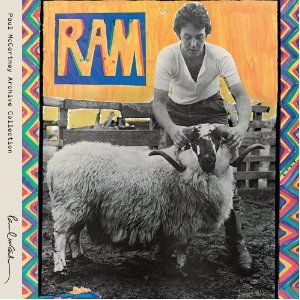
When Paul McCartney released Ram in 1971, his second post-Beatles solo album (and co-credited to his wife Linda), critics got out blunt knives and hacked at it, and him.
Rolling Stone's Jon Landau – later Bruce Springsteen's manager and producer – said it represented the lowest point “in the decomposition of Sixties rock thus far”. At least with Bob Dylan's myth-destroying Self Portrait you could feel hatred, but “Ram is so monumentally irrelevant you can't even do that with it”.
He said Ram was “lacking in taste”, McCartney was creating superficial music, and noted the Beatles had hidden his weaknesses for sentimental cutsie-pie muzak.
Ram was widely dismissed as “suburban rock'n'roll” and polished-up mediocrity. Domesticity – and the lack of an editorial voice like John Lennon's – could only produce such a result.
Despite the critical drubbing, Ram – long a McCartney fan-favourite and an Essential Elsewhere album here – topped the British charts and went to number two in the States.
Its current reissue in the on-going Paul McCartney Archive series – as a remastered single disc, a double disc (with studio sessions and his exquisitely crafted single Another Day) and a massive Deluxe Edition of four CDs (which includes the album in stereo and mono remasters), a DVD of films and videos, facsimiles of handwritten lyrics and Linda's photos and book – has seen a reconsideration.
Time allows distance from the inevitable Beatle comparisons it suffered (superior solo work from George Harrison and Lennon, McCartney characterised as the man who broke up the band) and reviews today are more generous.
Uncut magazine (giving seven out 10) found it “just occasionally brilliant and historically fascinating” while noting although “nothing quite gels” the single Back Seat of My Car “is better than 90 percent of Let It Be”.
Mojo – admittedly a Beatles-obsessed magazine for seniors – gave it four stars saying you could now “celebrate its defiantly minimalist pleasures” and observed it sounds “quintessentially McCartney”.
Ram -- the only album to be credit to McCartney and the missus -- came out of the increasingly acrimonious divorce from the Beatles when the McCartneys retreated to the countryside, which explains songs celebrating family life, eating at home and animals, and a homemade cover of him posing with a ram.
It also seemed to take swipes at Lennon and Yoko Ono in the condescending Dear Boy (McCartney denies that), Too Many People and Back Seat of My Car (“we believe we can't be wrong”). On the cover was a photo of one beetle mounting another. Interpret that for yourself.
Unlike its low-key predecessor, the self-titled album of home recordings which critics were more forgiving of, Ram took its raw material into a New York studio for serious polishing.
That juxtaposition between pastoral simplicity (Three Legs, Heart of the Country, Ram On) and slick pop was an uneasy one, but songs like the segue of Uncle Albert/Admiral Halsey and the turn-it-up, orchestrated rock of Back Seat of My Car (former Beatles' producer George Martin doing the arrangements) were popular and stand up well as professional pop-rock. Ram also sounds terrific.
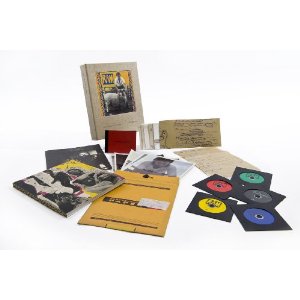 There are oddities too. The minimalist
rave-up Monkberry Moon Delight was influenced by voodoo rocker
Screamin' Jay Hawkins (who later covered it). The Deluxe Edition
includes an even more unusual item.
There are oddities too. The minimalist
rave-up Monkberry Moon Delight was influenced by voodoo rocker
Screamin' Jay Hawkins (who later covered it). The Deluxe Edition
includes an even more unusual item.
In 1977 an orchestrated version of Ram appeared as Thrillington and credited to band leader Percy Thrillington. It sank without trace, until it was revealed later to have been McCartney's private project.
Thrillington is in the big box but demands no reconsideration. But Ram?
Better than critics originally believed, if not “legendary” as some claim, and memorable pop-rock from a battle-scarred veteran making his way back to the frontline.
There is much more at Elsewhere about Paul McCartney's long career starting here.

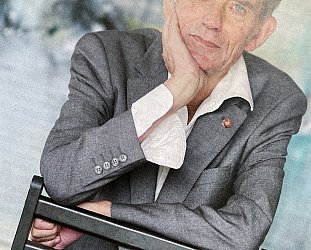
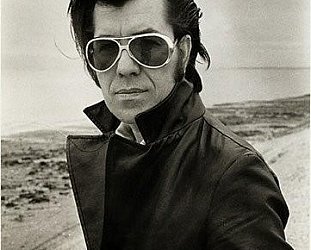
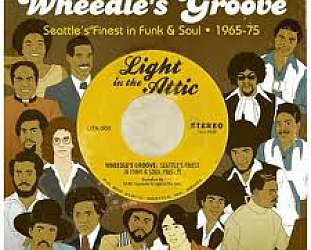
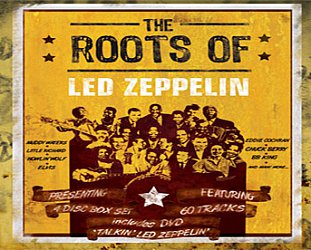
post a comment